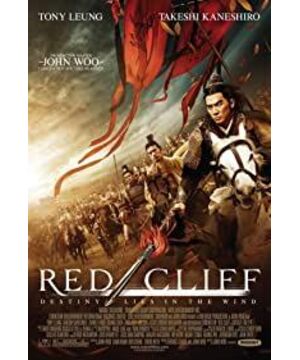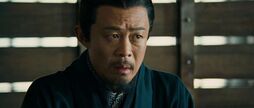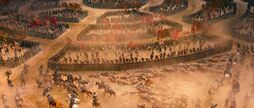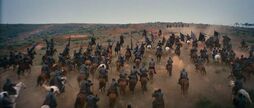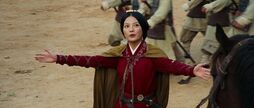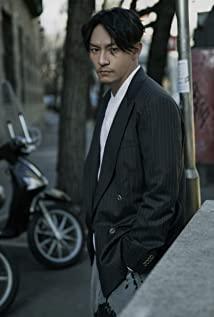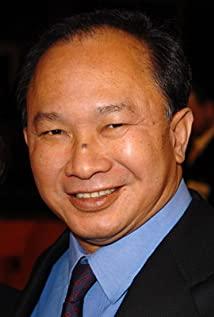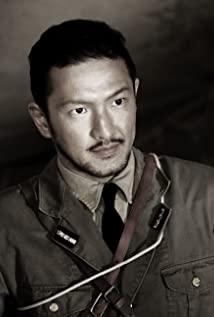anniversary of Chibi, I suddenly realized that this year is the 1800th anniversary of the Battle of Chibi. Because of this war, China's reunification has been delayed by more than 70 years. China will not poison the people. Moreover, this split caused the Western Jin Dynasty to fall back into the flames of war that lasted for more than three hundred years after the brief and turbulent unification of the Western Jin Dynasty. However, the two countries of Wu and Shu suffered bleak operations, and remote areas such as Wu Yue, Guangdong, and Sichuan had to be developed, and the civilization of the Central Plains really penetrated into the wild land. In the following hundreds of years, the literary and artistic style should prevail when Emperor Wu was unified. The five flavors are mixed, the merits and demerits are right and wrong, and it is difficult to judge from oneself.
Then why do we never forget the battle of Chibi?
I finally watched "Red Cliff", a movie I had been looking forward to for more than ten years.
It was not as shocking as imagined, because I was really dazed by being scolded and praised, and my senses were sluggish.
Apart from not seeing the disappointment of the Confucianism in Tongue Wars, the so-called laughter didn't feel so abrupt. There is also Zhou Yu, who is short, dark and dry, and it is not expected to be an eyesore. Compared with "Romance of the Three Kingdoms", the plot changed beyond recognition, it is not unforgivable, even that electric eye Zhuge Liang, also satisfied the infinite YY when I was watching "Romance of the Three Kingdoms" when I was a child, he should sympathize with Zhou Yu, he should be young and handsome, like Wei Wei Jie is as tempting as a girl. In short, he can't be as old-fashioned as a Niu-nosed Taoist in his twenties like a Peking Opera stage. To be honest, even Mr. Lu Xun was dissatisfied with Mr. Kong Ming, who called the wind and the rain in "Romance", saying that he "like Zhuge's wisdom is close to a demon", and Zhuge Liang in the film is not so clever, but still versatile ("Three Kingdoms" "brightness is better than Ingenious"), know the world, and understand the human feelings. Zhou Yu should also be leisurely and open-minded, and forgive hundreds of years of grievances. These are the Three Kingdoms at the end of the Han Dynasty, and they are all nobles who talk about demeanor and appearance. For a moment, I blamed myself for the low standard of domestic films, as long as I can tell a story to justify it. But "Chibi" is not just that, and it is not just the so-called handsome guy that it used to move me.
In fact, for a material control like me, the first and most important thing is to make the ancient costumes and props etiquette like that. Movies based on history are meant to reproduce as realistically as possible, and this reality is primarily the reality of details. Fortunately, the movie did a good job, especially when Cao Cao appeared at the beginning of the movie. In the gloomy hall, the civil servants dressed in red and the military generals in black, lined up on both sides. In the middle sat the little emperor, his face was useless, and he smiled a little when he saw the bird. Suddenly there was a sense of slaughter, Cao Cao came out, walked slowly, and took a sword to the hall, domineering. But when Kong Rong spoke, he was rushing to the side, not wearing a sword. I don't remember when Cao Cao was honored by Jiuxi. I hope no one will say that the film does not conform to history after verification, but this may be trivial. . However, there are many people who have trouble with the plot of Liu Bei weaving straw shoes, but Pei Note in "Three Kingdoms" does write such a thing. As for Zhang Feishan's paintings, it is also recorded in history. It can be seen that people who use history to tell things are not necessarily familiar with history and literature, but they only use hearsay to make things difficult, and ignorance is interesting.
I can't stand the fact that some people who criticize "Red Cliff" always mention the history. If we really take history seriously, the official history of the Three Kingdoms period is really a problem. Chen Shou, the author of "Three Kingdoms", is from Shu, and his father also worked under Zhuge Liang. Zhuge Liang was punished by cutting off his hair -- that is, Cao Cao's punishment for trampling crops. However, Chen Shou didn't seem to hold much grudge against this matter. He said that "Those who have no grudges even though the criminal administration is strict, they will persuade Ming with their peaceful heart", so the personal grievances between Chen Shou and Zhuge Liang will not affect the history books. objectivity. It is because Chen Shou is a remnant of the Shu Kingdom, and he has some criminal attitudes, and the Western Jin Dynasty is a self-proclaimed successor to the Wei Kingdom, so it is natural to be a taboo for Wei. It is vilification, but it will not be avoided deliberately. In addition, there is no historian in Shu—I can’t guess Zhuge Liang’s mind on this point—Chen Shou has more room to play based on existing historical materials and hearing and seeing. It's just that Chen Shou wrote "Records of the Three Kingdoms" too soon, and he hadn't had time to read many of the materials, so "Records of the Three Kingdoms" was very brief, so there was Pei Songzhi's annotated version. Twenty-four Histories, this is the only note that is equally famous as the text. And Mr. Pei's note is unique, he cited a lot of unofficial history notes, and he still judges whether it is reasonable or unreasonable. That is to say, the official history of "Three Kingdoms" itself opened a precedent for jokes.
Back to Chibi, the war that occurred in AD 208, although there are official records, the facts are still obscure. "Records of the Three Kingdoms·Wei Shu·Wudi Ji" only said that Cao Cao's army encountered a great epidemic and set off on fire. Obviously, this is based on the principle of taboo for the Venerable. However, "Wu Di Ji" wrote that Cao Cao was fighting against Liu Bei, and "Zhou Yu Biography" wrote that Cao Cao fought with Zhou Yu. There are also sporadic records in other biographies. Of course, there are no such wonderful passages as Jiang Gan's stealing books and thatched boats borrowing arrows. Even Huang Gai's fraudulent surrender did not have a bitter plan first, and naturally there are no twists and turns in the romance. In Zhuge Liang's biography, it is written that he facilitated the alliance of Sun and Liu, which is far inferior to that of "Romance" in the battle of Confucianism, intellectual stimulation of Zhou Yu, Zhechongzunzu, vertical and horizontal, and the exciting battle of Chibi in "Romance" that we see today. Wei, Jin, Southern and Northern Dynasties, notebook novels, Tang and Song Dynasties, and Shi Ping dialects. In fact, Liu Bei in the "Three Kingdoms" is a hero of a generation - it doesn't quite match the image of a loyal and loyal elder, and I secretly think that it has the legacy of Liu Bang. There are small similarities, but Cao Cao in "Romance" is dwarfed, but he is also arrogant at times, especially in the battle of Chibi, Heng Leng wrote poems, the hero is late, and it is the first of its kind in the Wei and Jin Dynasties. As for the "Three Kingdoms", it only emphasizes Zhuge Liang's political talent, comparing him to Xiao He and a class of sages. His image did not grow taller until the Tang Dynasty. After being sung by poets, especially Du Fu, Zhuge Liang's role as a model of sages for all generations was established, and he knew it was impossible. The Confucian heroic spirit of the Sun rises for it, and with the passage of time, it gradually becomes a role model for people and ministers. "Romance" even exaggerated Zhuge Liang's multi-faceted talents, and asked him to tell his children to take care of the countryside before leaving the mountain, and when the world was unified, he would return to his hometown to work hard -- first make a contribution and make a career, then return to the mountains and forests, this is a traditional scholar the highest ideal, but never realized.
Chinese history has never lacked war tactics. Why are the Three Kingdoms only favored? Solid itself has many heroes, the time is not long or short, the fate of the characters is in line with the general trend of history, the story is not much and not much, and the clues can be clarified. The six dynasties of the Spring and Autumn Period and the Warring States Period are too long, the heroes are obliterated by history, and the rest are too short to tolerate the heart-wrenching life of a hero's tragic life that "long makes the hero full of tears". In addition, in the six dynasties after the Three Kingdoms, it was the novel that flourished, leaving a lot of unofficial history notes and even infiltrating official history. Beginning in the Tang Dynasty, joining the army and Bianwen even joked about the Three Kingdoms. Especially since the Southern Song Dynasty and the Yuan Dynasty, the country was in danger and the nation suffered. The concept of Zhengshuo was secretly spread, and the spirit of loyalty was highly respected. According to legend, it was compiled from the end of the Yuan Dynasty to the beginning of the Ming Dynasty, and then it caught up with Luo Guanzhong, who was highly talented in literature. Later, Mao Zonggang commented on the tailoring, Jin Shengtan appreciated it, and Hu Shi respected it. Thus, the classic status of "Romance of the Three Kingdoms" was finally established. Of course, in this long process of canonization, the story of the Three Kingdoms has long been deeply rooted in the hearts of the people, and the rulers have added fuel to the flames, and there are also rulers who have fueled the flames, using "Three Kingdoms" to promote loyalty.
And this canonization process is not an unfounded construction. If it has no value that can be used by the world, why is Romance of the Three Kingdoms not others? Benevolence, loyalty, integrity, wisdom, dedication, death, knowing it is impossible, literary style, taking the world as one's own responsibility... These are the qualities that have been praised by the world since ancient times. The goal that individuals strive to achieve in order to achieve a certain state. In the eyes of the ancients, it is also the real core of the constant changes in history. (The moral concept promoted in the official history is already hypocritical nonsense in the eyes of modern people, but the ancients believed it. This is a complex issue, close to the ancient and modern people considered in "Natural Rights and History" I have time to analyze the difference.) Of course, the history of the ancients is full of power struggles, but there is still something similar to "nature right". For the modern people of historicism, the so-called history no longer has its natural and legitimate value. It becomes the void of time, where the real interests are calculated.
The people of the May Fourth generation denounced history because they believed in the individual in the sense of enlightenment. At first, the literature of the 1980s only fought against all the factors that repressed human nature-although this "human nature" eventually became closer and closer to its animal nature. one side. However, root-seeking literature, avant-garde literature and new historical novels have rejected the pseudo-sublime, rejected the sublime, and rejected all the values that were once considered "good", and attributed all history to human desires. All virtues become false and empty constructions, and only animal instincts are the essence of man and of history.
Chinese contemporary literature is inherently cartilage, and the blockbuster films of the 21st century just pick up the last stream of literature-considering the background of some of the main creators, my assumption is strengthened: Chen Kaige's literature and art of Beiying in the 1980s A young man, Zhang Yimou, who studied photography, did not regard history as nothing as much as he did. He had nothing to do with literature in his early years, and Feng Xiaogang, who was quite a ruffian, was stronger than the two. His brain was short-circuited and he made "The Banquet" soon after filming. "Assembly" is back to normal. The biggest tendency of the blockbusters since "Hero" is historical nihilism. The peaks are "Night Banquet" and "Golden Armor". They regard desire as the most profound truth, and they do not hesitate to use allegorical plots to instill the same with the public again and again. a truth. They set up a "formation of nothingness", telling stories of desire in a society that has long been commodified, and dismantling a history that has long been shaken by the present. For our nation, history is not a series of events that happened in the past, nor is it a specialized knowledge since the division of modern academic disciplines, nor is it a false construction imagined by new historicists. It is the basis of our identification. If the "imagined community" is reasonable, China's imagination is not based on the communication system after the rise of modern print culture, but from our official history, from our Romance. In the imagination, recognition and memory of our common hero ancestors, we form a community. Modern China has inherited almost all the territory of the Qing Empire and has become the only empire that has not fallen apart in the modern transformation. Of course, Habermas does not recognize China. Is a modern country, that's another story. The significance of history to us is far from just a textual research on the past, it also means the basis of our actual identification, that is to say, history has value in addition to facts. It can be reflective, not dismantled.
If you only look at the line of "costume blockbusters", "Chibi" is not bad. My requirements for the film are simple and low. Whether it's like Hollywood or not like Hollywood, I'd rather it be like Hollywood. What's so bad about Hollywood? Hollywood tells the stories of heroes to generations of Americans, and in a sense shapes the character of a nation.
Therefore, I would like to see a domineering but not sinister Cao Cao, I would like to see Zhuge Liang and Zhou Yu who sympathize with each other, I would like to see the gentle friendship between men who have watched gay movies a lot, and I do not want to see the men in the harem. Intrigue me. I want to see Zhou Yu who is in harmony with Xiao Qiao Qinse, but I don't want to see a hero with a twisted mind. I would like to see a sunny Zhuge Liang, but I don't want to see him scheming. I want to see them stand up against Cao Cao, I don't want to see "a big world". When I heard Zhou Yu say, "When you have experienced the first (war), you don't want to have the second" - I almost burst into tears. Of course, as a popular culture, "Chibi" is not profound, I just want to see the innocent optimism and pure heart of Disney and Doraemon, which contains the eternal existence of the true core of history. It is something that our ancestors in the time of the red cliffs once possessed and passed away in time.
It is thought to be a festival.
View more about Red Cliff reviews


